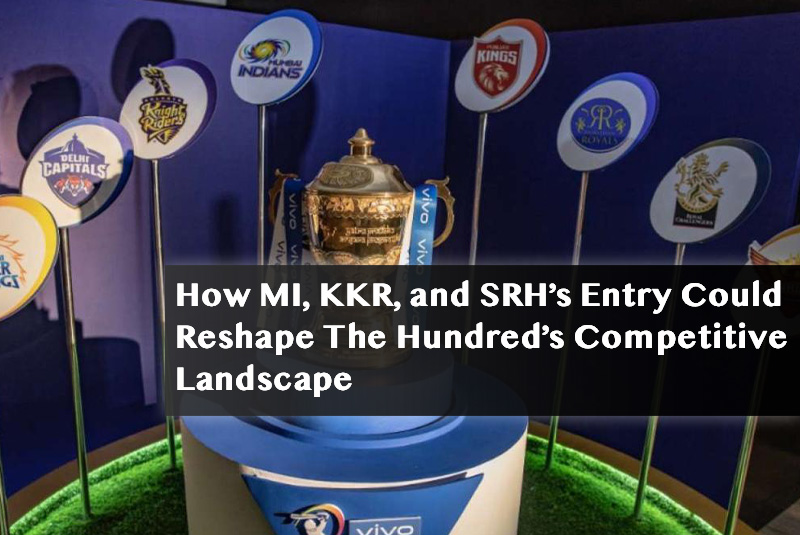How MI, KKR, and SRH’s Entry Could Reshape The Hundred’s Competitive Landscape
2024-11-15
The excitement around The Hundred, England and Wales Cricket Board's (ECB) innovative format, is
about to escalate, especially with the potential entry of prominent Indian Premier League (IPL)
franchises like Mumbai Indians (MI), Kolkata Knight Riders (KKR), and Sunrisers Hyderabad (SRH).
With these powerhouses expressing interest in acquiring stakes in The Hundred teams, the competitive
landscape of this unique tournament is poised for significant transformation. This post will explore
how their involvement could reshape The Hundred’s dynamics, the implications for the format, and the
overall cricketing landscape.
The recent interest from IPL teams, including MI, KKR, Rajasthan Royals, and SRH, marks a pivotal
moment for The Hundred. These franchises have established themselves as successful brands in T20
cricket, and their entry could bring a wealth of experience, fan engagement strategies, and a global
following to The Hundred.
With the ECB setting a deadline for bids to buy a 49% stake in the eight teams, the competition
among potential investors has intensified. The GMR Group's acquisition of Hampshire and the
involvement of Avram Glazer, co-owner of Manchester United, signal the increasing allure of The
Hundred. This interest underlines the format's potential as a lucrative investment opportunity,
further validating its existence and relevance in the modern cricketing landscape.
The addition of MI, KKR, and SRH could significantly enhance the competitive balance within The
Hundred. These franchises have built successful squads through strategic player acquisitions, expert
management, and an understanding of T20 dynamics. Their participation would likely elevate the
quality of competition, compelling other teams to raise their game in response.
Moreover, the financial backing and resources that these franchises possess could lead to improved
team setups, better training facilities, and an influx of top-tier players from both domestic and
international circuits. This would not only raise the stakes but also create an environment where
emerging talents can showcase their skills against the best in the game.
The ECB's openness to adopting a hybrid model where some teams are owned by the ECB and others by
private investors creates an intriguing business dynamic. If MI, KKR, and SRH secure stakes, they
could bring innovative business strategies from the IPL, including fan engagement initiatives,
merchandising, and digital marketing techniques that have proven successful in India.
These franchises could also forge strategic partnerships with local counties, facilitating a better
understanding of the regional audience and enhancing matchday experiences. The crossover appeal of
these franchises could attract more fans to The Hundred, thus boosting attendance and viewership.
Despite the ECB’s optimism regarding The Hundred’s growth prospects, concerns linger over financial
projections and the long-term sustainability of the tournament. Lalit Modi, the architect of the
IPL, has criticized the ECB's optimistic outlook, suggesting a disconnect with reality. This
skepticism may lead potential investors to approach their involvement cautiously.
However, the influx of interest from over 100 global investors—ranging from India to the
USA—indicates a broader confidence in The Hundred's potential. ECB Chairman Richard Thompson's
assertion that the investment base is more extensive than anticipated could bolster investor
sentiment, encouraging franchises like MI, KKR, and SRH to take the plunge.